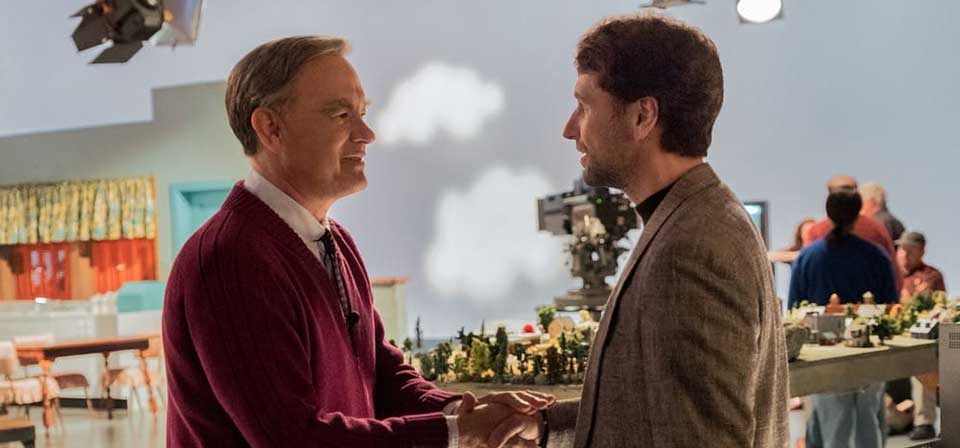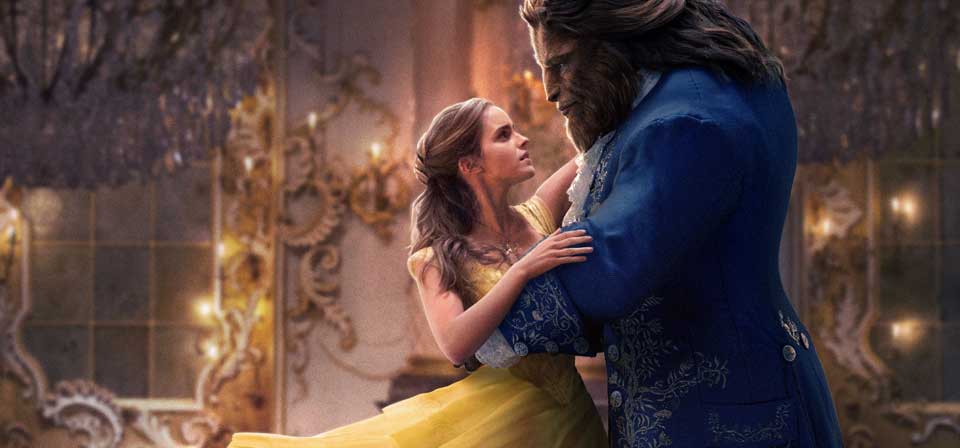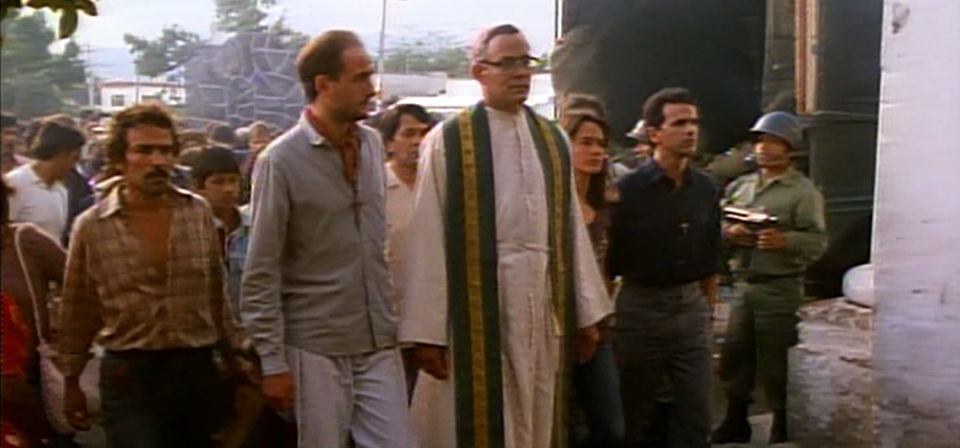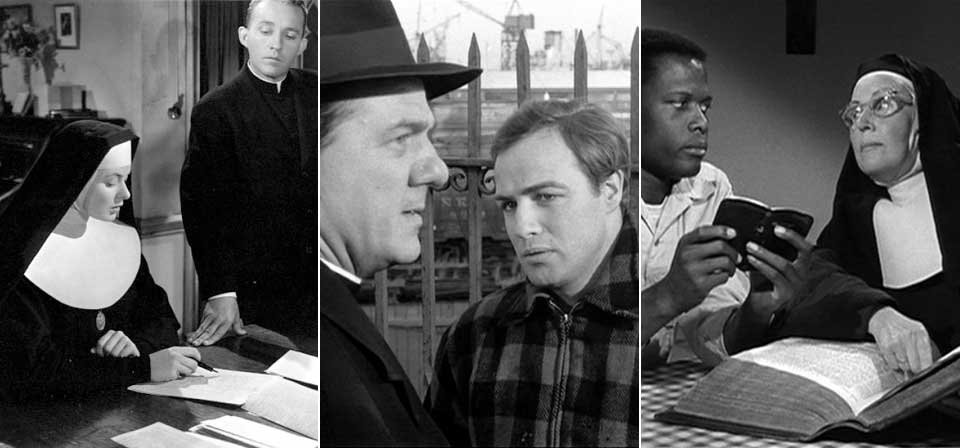Search Results
107 records found

A Beautiful Day in the Neighborhood (2019)
Mr. Rogers’ Neighborhood holds a special place — it would not be too strong to say a sacred place — in the hearts of many. Yet that neighborhood is an infinite distance from where we live now.
A Beautiful Mind (2001)
John Nash goes through life making connections, but not with other people. He sees meaningful patterns where the rest of us see only unintelligible randomness. Ideas are as real as people to him. Maybe more so. Eventually the ideas become too real — or the people not real enough — and Nash withdraws inexorably into the tangles of his own incandescent mind.
Beauty and the Beast (1991)
At the intersection of great animated films, great filmed stage musicals, and great fairy-tale romances, Disney’s Beauty and the Beast stands alone. Directed by Gary Trousdale and Kirk Wise, it is simply the quintessential Disney masterpiece, the perfection of everything that Cinderella, Alice in Wonderland, Sleeping Beauty and The Little Mermaid aspired to.

Beauty and the Beast (2017)
Can a realistically computer-rendered French gilt bronze candelabra be debonair? Jaunty? Rakish, even?
Because of Winn-Dixie (2005)
Faithfully adapted from the popular Newbery Honor novel by Kate DiCamillo, Because of Winn-Dixie is a good family film frequently verging on being an excellent one, and is quite a bit better than the dog-movie clichés suggested by the trailers.
Becket (1964)
Peter O’Toole roars magnificently both in laughter and in rage; his Henry is a simple, direct, utterly unprincipled man who sees the world in two great categories: (a) things he wants, and (b) obstacles to getting them.
Becket Back on the Big Screen
It’s a classic. It’s beloved, if for decades only on VHS. It’s got big stars, terrific performances, witty dialogue. Its blend of sex, spectacle and spirituality surpasses anything Cecil B. DeMille ever attempted. So why has Becket never been restored and brought to DVD in the style it richly deserves?

Becoming Saint Óscar Romero
The recent beatification of Óscar Romero, Archbishop of San Salvador from 1977 until his assassination in 1980, has drawn new attention to the gap between public perception and reality regarding this popular but controverted figure in El Salvador’s turbulent history. For those interested in beginning to understand who Blessed Archbishop Romero really was, the Christopher Award–winning 1989 film Romero, starring Raúl Juliá, isn’t a bad place to start.
Bedrock Studios: Birds, the Bible and Children’s Books
If the name Bedrock Studios doesn’t sound familiar, you might think it’s because you haven’t watched “The Flintstones” lately … especially since the new production company was co-founded by Cary Granat — not the Hollyrock star, the former CEO of Walden Media — and Ed Stones, er, Jones of Industrial Light & Magic.

Bee Movie (2008)
As bright-hued as it is dim-witted, Bee Movie is a scattered oddity of a film, combining warm, candy-colored computer-animated visuals, occasionally laugh-out-loud absurdist humor and such profound stupidity about birds and bees — and flowers and trees — that kids watching it will actually lose “facts-of-life” IQ points. Which, for the record, is not a good thing.

Before Spotlight and Brooklyn: Priests, religious, and the Academy Awards
Two of this year’s eight best picture Academy Award nominees, Spotlight and Brooklyn, present dramatically different depictions of Catholic clergy — though neither gives a clerical character more than a few minutes of screentime.
Behind Enemy Lines (2001)
Being John Malkovich (1999)
The malleable, plastic vision of human nature in general and of sexuality in particular, in which gender and relationships shift and merge and re-form like blobs of goo in a lava lamp, represents a profoundly anti-human fantasy and an affront to personal dignity.
Bella (2006)
In the end, Bella has something to challenge everyone, pro-life or otherwise. For pro-lifers, the inspiring ending represents a call to love of neighbor. It isn’t enough just to oppose abortion: We are called to love those in need with the love of Christ, potentially at a cost to ourselves. For those who favor abortion, the ending represents a challenge to recognize that life is a beautiful and precious gift even in far from ideal circumstances, and the choice to embrace life, even when it involves great sacrifice, is also beautiful.
Bella: Metanoia Films’ award-winning first film about wounded hearts, family and a crisis pregnancy celebrates love, life and understanding
For Verástegui — a former boy-band and telenovela heartthrob known to Latino fans as “the Mexican Brad Pitt” — the mission is simple. “Hollywood doesn’t belong to the studios,” he recently told Decent Films. “Hollywood belongs to God. And we need to take it back. And that’s what I’m trying to do, by example first, trying my best every day to be involved in projects that will inspire people to use their talents to do something positive for the world.”

Ben-Hur (2016)
On paper, and sometimes even on screen, there’s some promise and potential in this remake of Ben-Hur.
Ben-Hur [A Tale of the Christ] (1959)
The grandest of Hollywood’s classic biblical epics, William Wyler’s Ben-Hur doesn’t transcend its genre, with its emphasis on spectacle and melodrama, but it does these things about as well as they could possibly be done.
Ben-Hur [A Tale of the Christ] (2003)
In 2003, Charlton Heston reprised his greatest role, if in voice only, in an animated made-for-TV version of Ben-Hur from the director and producers of the animated “Greatest Heroes and Legends of the Bible” series.
Ben-Hur [A Tale of the Christ] (1925)
At nearly 2½ hours long, the 1925 version is still an hour shorter than the 1959 version, yet the story is essentially the same, and the scale similarly impressive.
Bend It Like Beckham (2002)
Movie audiences reliably enjoy just about every ingredient involved in Bend It Like Beckham, an East-meets-West comedy about an Indian family living in London’s Hounslow borough.
Recent
- Benoit Blanc goes to church: Mysteries and faith in Wake Up Dead Man
- Are there too many Jesus movies?
- Antidote to the digital revolution: Carlo Acutis: Roadmap to Reality
- “Not I, But God”: Interview with Carlo Acutis: Roadmap to Reality director Tim Moriarty
- Gunn’s Superman is silly and sincere, and that’s good. It could be smarter.
Home Video
Copyright © 2000– Steven D. Greydanus. All rights reserved.